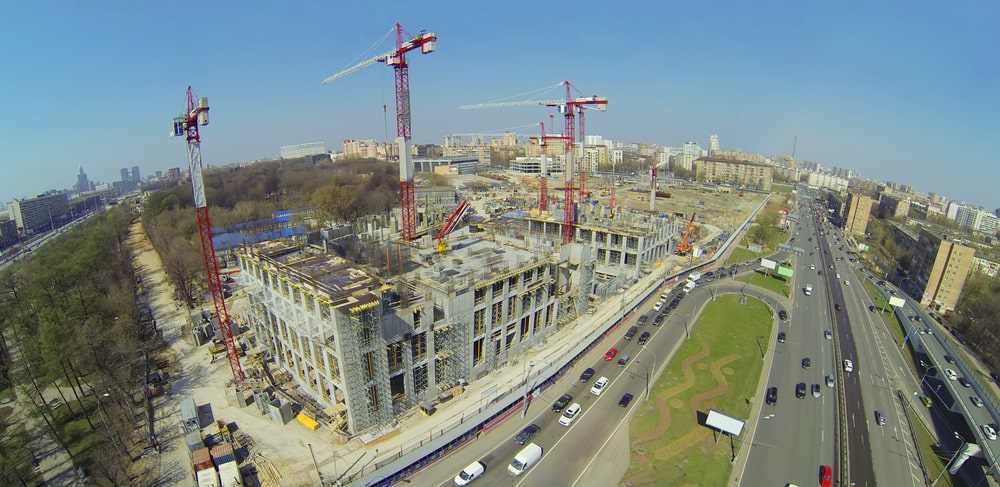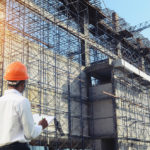Sector - Commercial
Slowdown continues into February

Construction activity has declined for first time in 11 months, according to the latest IHS Markit/CIPS UK figures.
Respondents to the PMI survey have indicated that Brexit hesitation is affecting markets, with business activity levels dropping below 50.0 no change marker for the first time since September 2017 – barring a brief dip for the ‘Beast from the East’ last March.
February’s figures ended a ten-month period of sustained expansion, with the drop in construction work led by reductions in commercial building and civil engineering activity. Combined with a lack of new orders so far in 2019, job creation has also remained subdued in February.
Survey respondents cited concerns about a lack of new projects to replace completed contracts.
Housing has kept its crown as the top performer, with growth recorded for the thirteenth month running. However, the rate of expansion was only modest and therefore could not offset the declines recorded for commercial and civil engineering activity. In both cases, the pace of contraction was the steepest since March 2018.
Comments from survey respondents suggest that Brexit uncertainty had slowed decision-making on commercial projects and led to subdued client demand so far this year. There were also reports that low transaction volumes and a general drop in confidence across the housing market had acted as a brake on residential building.
February data signalled only a marginal overall rise in new work received by construction firms, with the latest index reading the weakest since May 2018. Political uncertainty was widely cited as a factor contributing to a lack of invitations to tender, particularly on commercial projects.
Business confidence hit a four-month low, ranking well below the long-run survey average. Construction firms noted that delays to client decision-making had slowed progress of new project starts, which could create gaps in their future workloads.
Some firms noted that stockpiling by UK manufacturers had resulted in shortages of transport availability and led to longer wait-times for construction products and materials.
Tim Moore, Economics Associate Director at IHS Markit, which compiles the survey: “The UK construction sector moved into decline during February as Brexit anxiety intensified and clients opted to delay decision-making on building projects. Risk aversion in the commercial sub-category has exerted a downward influence on workloads throughout the year so far. This reflects softer business spending on fixed assets such as industrial units, offices and retail space. The fall in commercial work therefore hints at a further slide in domestic business investment during the first quarter, continuing the declines seen in 2018.
“There were also reports that the more fragile housing market confidence has begun to act as a brake on residential work, which adds to signs that house building has lost momentum since the end of last year. This leaves the construction sector increasingly reliant on large-scale infrastructure projects for growth over the year ahead.
“Construction companies pared back their purchasing activity in response to subdued demand in February, but delivery delays for inputs were among the highest seen over the past four years. Survey respondents noted that stockpiling efforts by the UK manufacturing sector had an adverse impact on transport availability and supplier capacity across the construction supply chain.
“On a more positive note, input price inflation held close to January’s two-and-a-half year low. The slowdown in cost pressures from the peaks seen in the first half of 2018 provides a signal that the worst phase has passed for supplier price hikes related to sterling depreciation.”
Duncan Brock, Group Director at the Chartered Institute of Procurement & Supply, said: “In short, the foundations of the construction sector are crumbling under the weight of Brexit and businesses are switching to survival mode until the way forward is cleared.”
If you would like to read more articles like this then please click here.
Related Articles
More Commercial News
- Construction output decreased in February
23 Apr 24
The estimates show that monthly construction output is expected to have decreased 1.9% in volume
- Lincolnshire gateway approved
2 Apr 24
Plans to transform part of the East Lincolnshire coast have taken an important step forward
- HS2 drives £10Bn economic uplift in the West Midlands
1 Mar 24
Data points to an economic uplift of £10Bn in the region over the next ten






